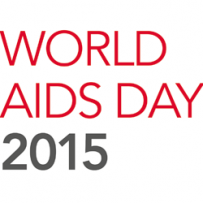World AIDS Day 2015

Tuesday, 1 December is World AIDS Day. World AIDS Day provides an opportunity to show support and solidarity with approximately 34 million people who are living with HIV/AIDS around the world. Despite achieving Millennium Development Goal 6 – to halt and reverse the spread of HIV – the epidemic continues to undermine the human rights of affected individuals, families and communities.
Social protection in terms of HIV/AIDS encompasses much more than simply providing healthcare to people living with HIV/AIDS. Inclusive social protection means also compensating for loss of livelihoods, ensuring adequate protection for family members, and tackling the problems of discrimination and inequality. In order to avoid problems of targeting and stigma, these specific needs should be incorporated into a comprehensive HIV-sensitive social protection programme.
Compensating for loss of livelihood due to illness is a well established part of social protection programmes that in theory includes people living with HIV. However, many of these people may fit multiple marginalized identities, such as migrants or members of indigenous communities who may find it difficult to access social protection. What’s more, this protection must be extended to include people who are affected by HIV/AIDS; meaning the children of people with HIV or indeed the parents of people living with HIV, who are often left to raise their grandchildren after an HIV-related death. Both people living with HIV/AIDS and their families or community members face discrimination and stigmatization. Social protection measures must ensure that everyone affected by HIV is able to access education, the labour market and housing without discrimination.
Sustainable Development Goal 3.3 aims to “end the epidemics of AIDS, tuberculosis, malaria, and neglected tropical diseases and combat hepatitis, water-borne diseases, and other communicable diseases” by 2030. However, UNAIDS have raised concerns over diminishing funds for the human rights response to HIV. While ending the epidemic is of course a priority, it is essential that the 2030 agenda take a human rights approach to ensure that the needs of people living with HIV are covered by social protection programmes and are able to lead safe, secure and dignified lives.
Visit UNAIDS’ World AIDS Day page to find out more and get involved.
